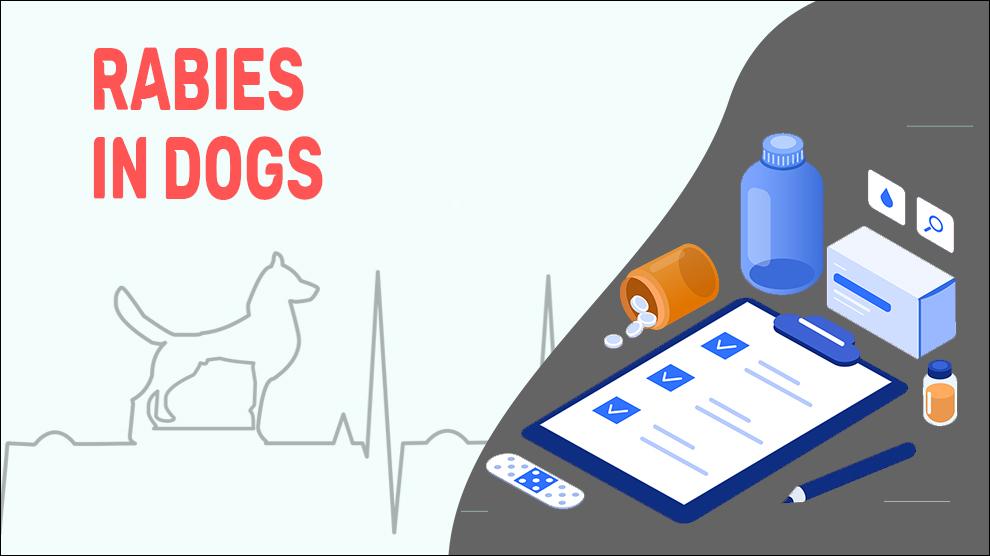What Is Rabies In Dogs?
Rabies is a viral disease that affects the central nervous system of mammals, including dogs. It is transmitted through the saliva of infected animals, most commonly through a bite wound.
Once symptoms of rabies appear, the disease is almost always fatal, making prevention through vaccination essential.
If you suspect that your dog has been exposed to the virus, it is essential to seek immediate medical attention. Do not attempt to handle or treat your dog without the guidance of a veterinarian.
Symptoms Of Rabies In Dogs
The symptoms of rabies in dogs vary depending on the stage of the disease. In the early stages, dogs may exhibit flu-like symptoms such as fever, lethargy, and loss of appetite.
As the disease progresses, more severe symptoms can occur, including aggression, biting, excessive salivation, and difficulty swallowing.
Eventually, the disease progresses to the point where the dog may become paralyzed and ultimately die.
Treatment Options For Rabies In Dogs
There is no cure for rabies in dogs. Once a dog has contracted the virus, the disease is almost always fatal. However, there are measures that can be taken to prevent the disease from spreading.
If a dog has been bitten by a potentially rabid animal, it is essential to seek medical attention immediately. A veterinarian will administer a series of shots to prevent the virus from spreading to the dog's nervous system.
If the dog is showing symptoms of rabies, it may be necessary to euthanize the animal to prevent the virus from spreading to other animals or humans.
Home Remedies For Rabies In Dogs
There are no home remedies for rabies. If a dog has been bitten by a potentially rabid animal, it is essential to seek medical attention immediately.
A veterinarian will administer a series of shots to prevent the virus from spreading to the dog's nervous system. It is also important to ensure that pets are vaccinated against rabies to prevent the disease from spreading.
How To Prevent Rabies In Dogs?
The best way to prevent rabies in dogs is to ensure that they are vaccinated against the virus. Puppies should receive their first rabies vaccine between the ages of 12 and 16 weeks, followed by a booster shot one year later.
After that, dogs should receive a rabies vaccine every three years. It is also important to avoid contact with wild animals and to keep pets on a leash when in public places.
Affected Dog Breeds Of Rabies
All dogs are susceptible to rabies. However, some breeds may be more at risk than others.
For example, dogs that live in rural areas or spend a lot of time outdoors may be more likely to come into contact with wild animals that carry the virus.
Additionally, dogs that are not vaccinated against rabies are more likely to contract the disease.
Causes For Rabies In Dogs
Causes:
Rabies is caused by a virus that is transmitted through the saliva of infected animals. The most common way for a dog to contract rabies is through a bite from an infected animal. Other animals that can carry the virus include bats, skunks, foxes, and raccoons.
It is important to note that not all animals that carry the virus show symptoms of the disease.
Therefore, it is essential to take precautions when interacting with wild animals, such as avoiding contact and ensuring that pets are vaccinated against rabies.
When To See A Vet For Rabies In Dogs?
Rabies is a serious and life-threatening disease in dogs, and it is crucial to seek veterinary attention immediately if you suspect your dog has been exposed to the virus. Symptoms of rabies in dogs can develop between three to eight weeks after exposure to the virus.
However, in some cases, the symptoms can appear within days or take months to show. Early symptoms may include fever, lethargy, and loss of appetite, while later symptoms may include aggression, seizures, and paralysis.
If your dog is displaying any unusual symptoms or has been bitten by an unknown animal, it is best to take them to the vet immediately.
Food Suggestions For Rabies In Dogs
There is no specific diet for dogs with rabies, but it is important to ensure they are eating a balanced and nutritious diet to help boost their immune system. It is also essential to provide your dog with plenty of fresh water to prevent dehydration.
In some cases, your vet may recommend a special diet based on your dog's individual needs, especially if they are experiencing difficulty eating or have other health issues.
It is best to consult with your veterinarian to determine the appropriate diet for your dog with rabies.
Conclusion
Rabies is a serious disease that poses a risk not only to dogs but also to humans. While there is no cure for the disease, it can be prevented through vaccination and taking precautions when interacting with wild animals.
If a dog has been bitten by a potentially rabid animal, it is essential to seek medical attention immediately. Additionally, it is important to ensure that pets are vaccinated against rabies to prevent the disease from spreading.
By taking these precautions, we can help keep our pets and ourselves safe from the dangers of rabies.

















